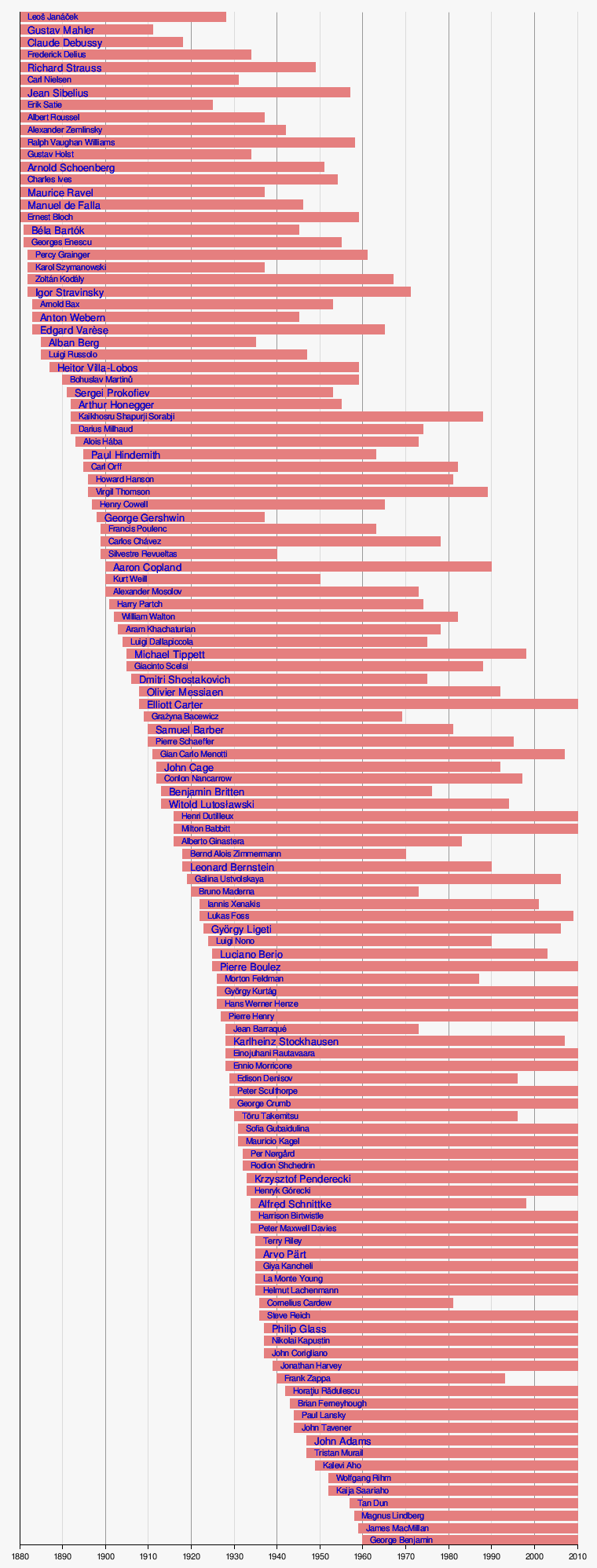List of classical music composers by period facts for kids
This is a list of classical music composers by era. Classical music is a type of art music that has been around for hundreds of years. A composer is a person who writes music. This article will help you explore the different periods of classical music and meet some of the amazing composers who created it. Each era has its own special sound and style!
Contents
Exploring Music: The Medieval Era
The Medieval era in music lasted from about 500 AD to 1400 AD. This was a very long time ago! Most of the music from this period was connected to the church. People often sang together without instruments. This type of singing is called chant. It was usually sung by monks or priests.
One important type of chant was Gregorian chant. It sounds very peaceful and spiritual. As time went on, composers started to add more voices to their music. This led to early forms of polyphony, where several independent melodies are sung at the same time.
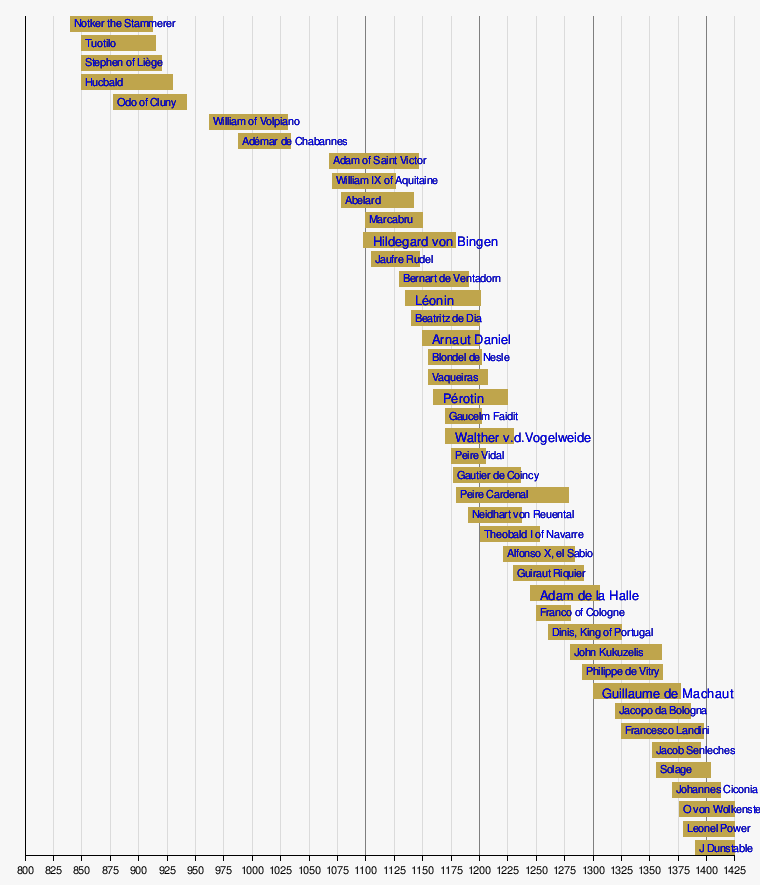
Discovering New Sounds: The Renaissance Era
The Renaissance era followed the Medieval period, lasting from about 1400 AD to 1600 AD. The word "Renaissance" means "rebirth," and it was a time of great new ideas in art, science, and music. Composers started to write music that sounded richer and more complex.
During this time, polyphony became very popular. This meant many different voice parts singing together, creating beautiful harmonies. Music was not just for the church anymore. People also enjoyed music for dancing and entertainment. Famous composers from this era wrote pieces for both religious services and royal courts.
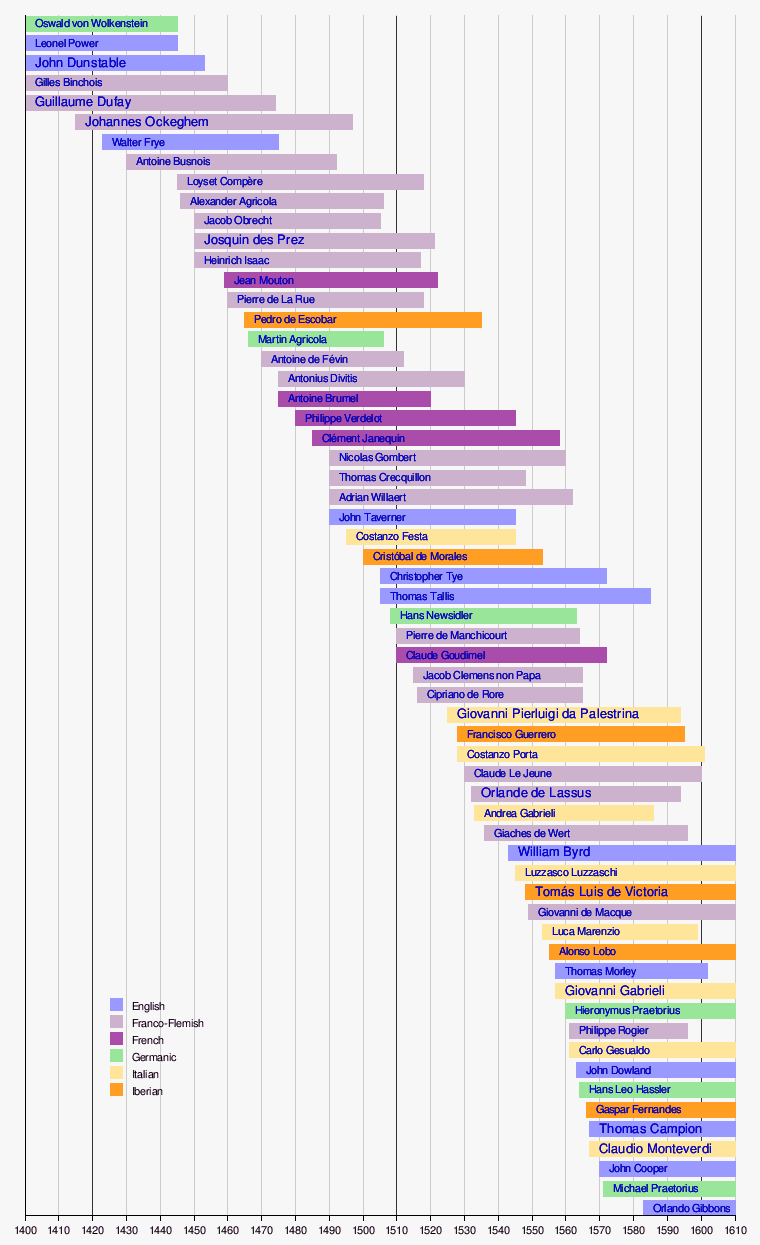
Grand and Dramatic: The Baroque Era
The Baroque era in music lasted from about 1600 AD to 1750 AD. This period is known for its grand, dramatic, and often very ornate music. Think of big, fancy palaces and powerful kings – Baroque music often sounds just as impressive!
Composers in the Baroque era loved to use many instruments. The harpsichord was a very important instrument, often used to play the bass line and chords. This era saw the rise of new musical forms like the concerto (a piece for a solo instrument with an orchestra) and the opera (a play set to music). Two of the most famous composers from this time were Johann Sebastian Bach and George Frideric Handel. Their music is still loved and performed today.
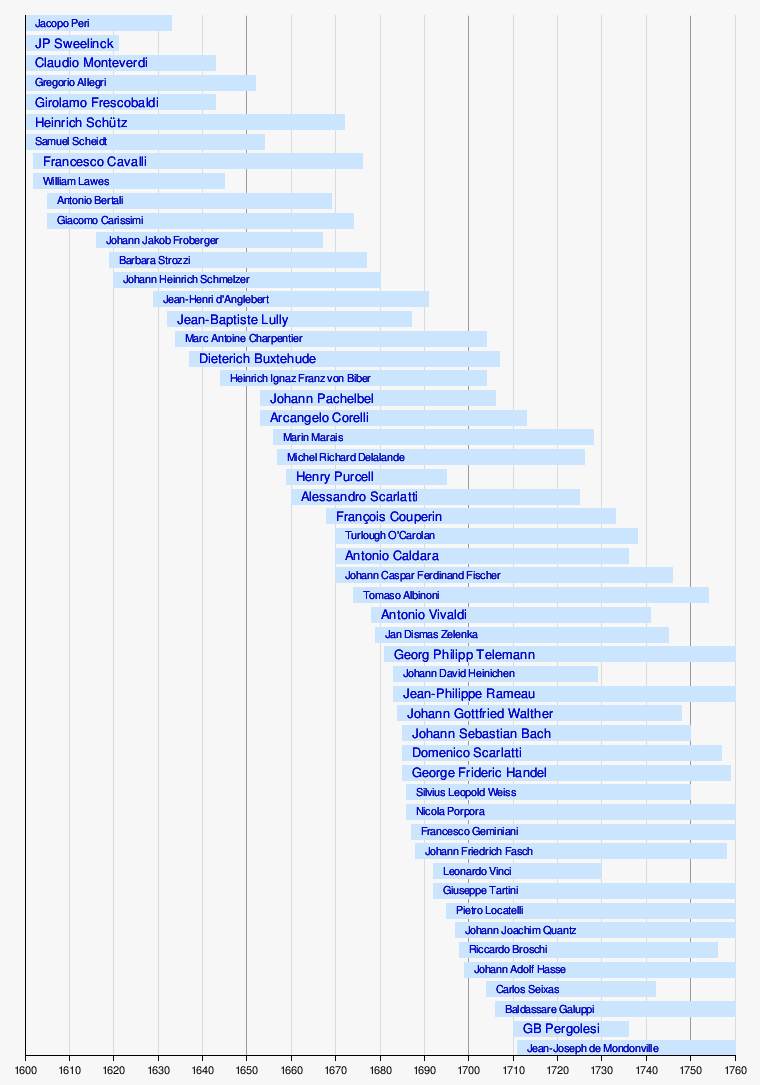
Elegant and Balanced: The Classical Era
The Classical era in music took place from about 1750 AD to 1820 AD. This period is known for its clear, balanced, and elegant music. Unlike the dramatic Baroque style, Classical music often sounds more simple and graceful.
During this time, the piano became a very popular instrument. Composers wrote many pieces for it. New musical forms like the symphony (a long piece for a full orchestra) and the string quartet (a piece for two violins, a viola, and a cello) became very important. Some of the most famous composers from this era include Wolfgang Amadeus Mozart and Ludwig van Beethoven. Their music is still among the most popular classical music ever written.
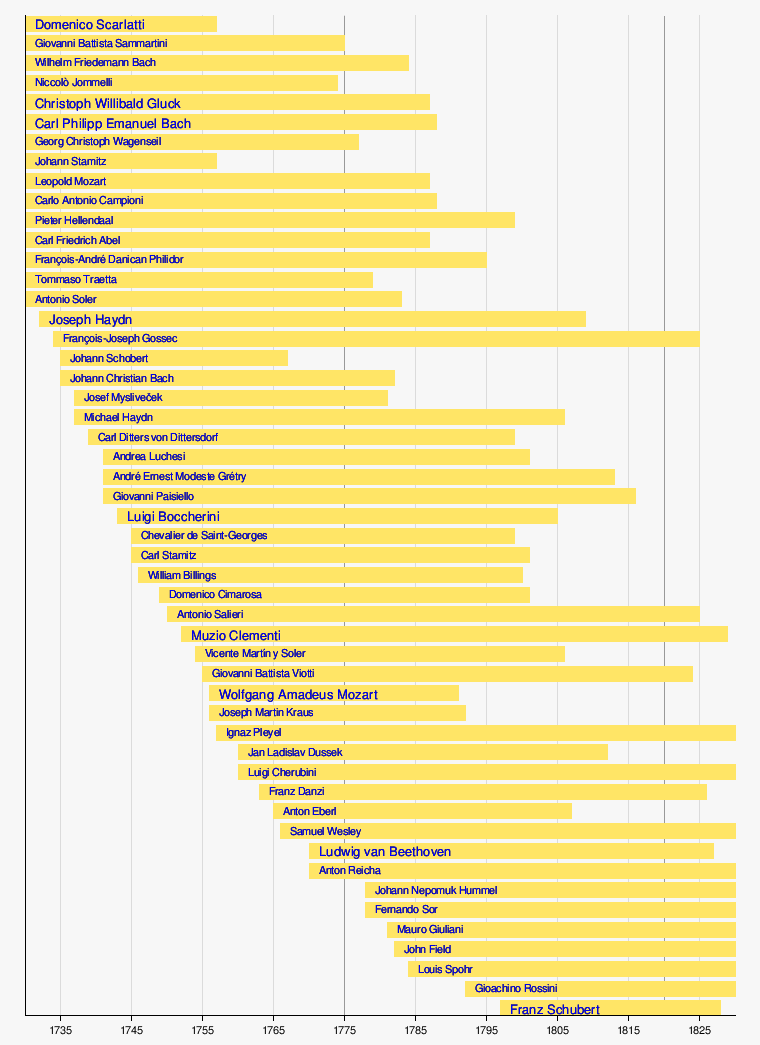
Expressing Feelings: The Romantic Era
The Romantic era in music lasted from about 1820 AD to 1910 AD. This period was all about expressing strong emotions and telling stories through music. Composers wanted their music to be very personal and imaginative.
Romantic music often has big, sweeping melodies and dramatic changes in volume and speed. Orchestras grew much larger, with more instruments like trombones, tubas, and many different percussion instruments. Composers explored themes like love, nature, heroism, and even fantasy. Famous composers like Pyotr Ilyich Tchaikovsky and Frédéric Chopin wrote some of the most beautiful and emotional music of all time.

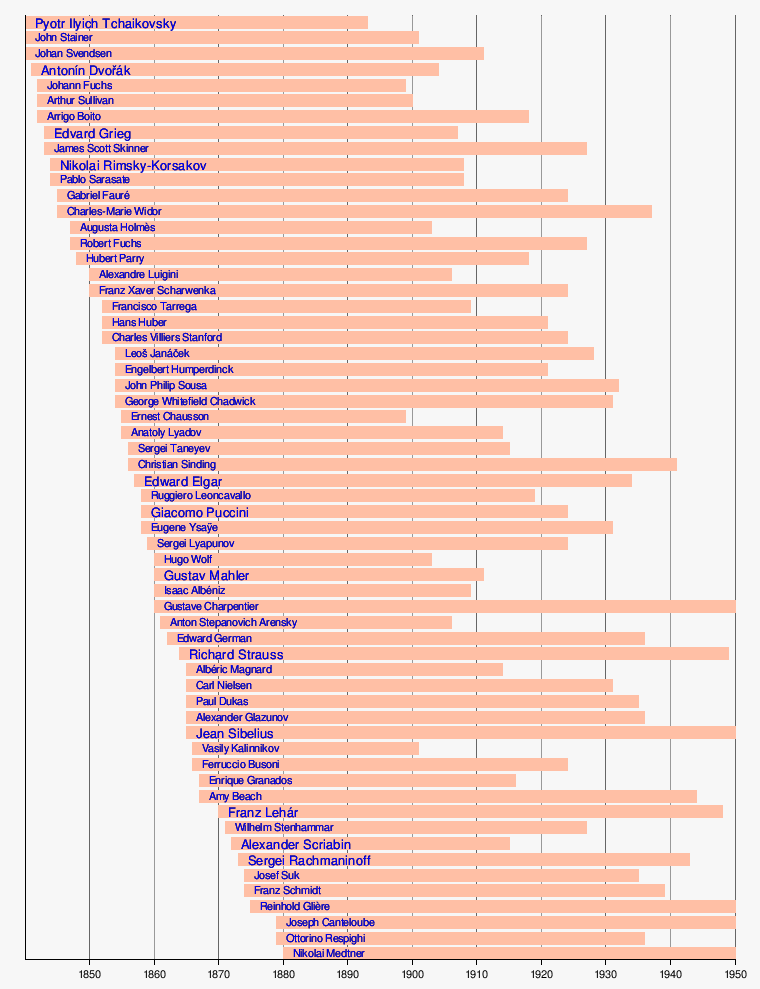
New Ideas: The 20th Century
The 20th century in music (from 1900 AD onwards) brought many exciting changes. Composers started to experiment with new sounds, rhythms, and harmonies. They broke away from the traditional rules of music from earlier eras.
This period saw a huge variety of styles, from music that sounded very modern and challenging to pieces that were inspired by folk music or jazz. Technology also played a role, with new ways to record and share music. Composers like Igor Stravinsky and Sergei Rachmaninoff pushed the boundaries of what music could be. The 20th century was a time of great creativity and innovation in classical music.
